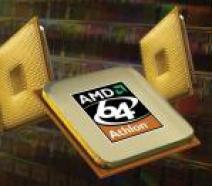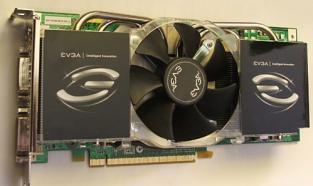OOPS! You forgot to upload swfobject.js ! You must upload this file for your form to work.
GlobalFoundries is not going to use EUV-lithography within the 7-nm technology
![]()
|
xtreview is your : Video card - cpu - memory - Hard drive - power supply unit source |
|
|||
|
|
||||
 Recommended : Free unlimited image hosting with image editor
Recommended : Free unlimited image hosting with image editor
|
POSTER: computer news || GLOBALFOUNDRIES IS NOT GOING TO USE EUV-LITHOGRAPHY WITHIN THE 7-NM TECHNOLOGY |
DATE:2016-11-07 |
|
|
GlobalFoundries company expressed the availability of its plans to use lithography with superhard ultraviolet (EUV) as part of a 7-nm technology, mass production on which will start in 2018. Manufacturer only hinted that retains the possibility of using EUV-lithography "on the key layers" in the future. Meanwhile, the Korean company Samsung has clearly favored the application of EUV-lithography within the 7-nm technology in their enterprises. Clarify the GlobalFoundries plans to allow interviews with its technical director Gary Paton , published with colleagues DigiTimes website. According to him, the development and introduction of 7-nm GlobalFoundries prefer to rely more on its own strength, rather than a partner in the face of Samsung resources. To be precise, the 7-nm process at GlobalFoundries going to develop active support of IBM. At least, the development team in this area 200 Professionals and 500 IBM employees. The work will be conducted in the state of New York. From the use of EUV-lithography within the 7-nm process first generation GlobalFoundries was forced to withdraw , key customers require a 7-nm process by the first half of 2018, and of EUV-lithography must mature no earlier than 2019. GlobalFoundries simply did not fit into the schedule. However, this does not mean that the EUV will not be used thereafter. By the way, we called those "key customers", which GlobalFoundries in the first half of 2018 will offer 7-nm serial products - is not only AMD's, but also IBM, in agreement with that company should produce processors of the same name brand. According to technical director GlobalFoundries, 7-nm process technology will bring the ability to create multi-core processors with high-speed interfaces, power consumption will reduce by 60%, to increase transistor switching speed by 30% and reduce the cost of the same 30%. Furthermore, within the 7-nm technology will be applied not only FinFET-structures, but also the spatial arrangement of 2.5D and 3D type microprocessors. From the use of 10-nm process technology GlobalFoundries declined, considering it "straight-through" and not efficient enough. | ||
|
|
||
|
xtreview is your : Video card - cpu - memory - Hard drive - power supply unit source |
|
|
|
|
||
|
Xtreview Support  N-Post:xxxx Xtreview Support        |
GLOBALFOUNDRIES IS NOT GOING TO USE EUV-LITHOGRAPHY WITHIN THE 7-NM TECHNOLOGY |
| Please Feel Free to write any Comment; Thanks  |
The motherboard manufacturer confirms the characteristics of the processors Coffee Lake (2017-09-08)
This year will not be released more than 45 million motherboards (2017-09-08)
AMD Bristol Ridge processors are also available in American retail (2017-09-07)
Advertising Radeon RX 570 for 279 dollars AMD caused a storm of emotions (2017-09-07)
In exchange for increasing the stake in the joint venture with Toshiba, Western Digital Corporation is ready to refuse to participate in the auction (2017-09-06)
AMD gave details about the history of the Ryzen Threadripper (2017-09-06)
The characteristics of the mobile chip MediaTek Helio P40 are known (2017-09-06)
AMD processors with Zen architecture of the second generation will raise frequencies and specific performance (2017-09-05)
Memory manufacturers increased capital costs this year (2017-09-04)
Retail boxed versions of economical processors Bristol Ridge (2017-09-03)
Specifications PCIe 4.0 will see the light this year, and PCIe 5.0 in 2019 (2017-08-30)
Intel introduced Movidius Myriad X the visual center for robots became smarter (2017-08-29)
A new round of video card price hike is triggered by a rise in prices for memory chips (2017-08-28)
The decision on the transaction between WDC and Toshiba can be made on August 31 (2017-08-27)
Russian scientists presented ferroelectric MELRAM (2017-08-27)
In pursuit of Toshiba Memory assets, Western Digital Corporation is ready to give up voting rights (2017-08-25)
In the second quarter, miners broke the sales statistics of video cards (2017-08-25)
Former CFO Intel is preparing to leave the company (2017-08-25)
Quake Champions is now available to all comers in the early access of Steam (2017-08-23)
AMD promises to do everything possible to return prices for Radeon RX Vega to the recommended level (2017-08-23)
![]()
To figure out your best laptops .Welcome to XTreview.com. Here u can find a complete computer hardware guide and laptop rating .More than 500 reviews of modern PC to understand the basic architecture


7600gt review
7600gt is the middle card range.
We already benchmarked this video card and found that ...

 geforce 8800gtx and 8800gts
geforce 8800gtx and 8800gts  Xtreview software download Section
Xtreview software download Section  AMD TURION 64 X2 REVIEW
AMD TURION 64 X2 REVIEW  INTEL PENTIUM D 920 , INTEL PENTIUM D 930
INTEL PENTIUM D 920 , INTEL PENTIUM D 930  6800XT REVIEW
6800XT REVIEW  computer hardware REVIEW
computer hardware REVIEW  INTEL CONROE CORE DUO 2 REVIEW VS AMD AM2
INTEL CONROE CORE DUO 2 REVIEW VS AMD AM2  INTEL PENTIUM D 805 INTEL D805
INTEL PENTIUM D 805 INTEL D805  Free desktop wallpaper
Free desktop wallpaper  online fighting game
online fighting game  Xtreview price comparison center
Xtreview price comparison center Lastest 15 Reviews


Rss Feeds
Last News
- The new version of GPU-Z finally kills the belief in the miracle of Vega transformation
- The motherboard manufacturer confirms the characteristics of the processors Coffee Lake
- We are looking for copper coolers on NVIDIA Volta computing accelerators
- Unofficially about Intels plans to release 300-series chipset
- The Japanese representation of AMD offered monetary compensation to the first buyers of Ryzen Threadripper
- This year will not be released more than 45 million motherboards
- TSMC denies the presentation of charges from the antimonopoly authorities
- Radeon RX Vega 64 at frequencies 1802-1000 MHz updated the record GPUPI 1B
- AMD itself would like to believe that mobile processors Ryzen have already been released
- AMD Vega 20 will find application in accelerating computations
- Pre-orders for new iPhone start next week
- Radeon RX Vega 57, 58 and 59: the wonders of transformation
- ASML starts commercial delivery of EUV-scanners
- The older Skylake processors with a free multiplier are removed from production
- Meizu will release Android-smartphone based on Helio P40
- AMD Bristol Ridge processors are also available in American retail
- The fate of Toshiba Memory can be solved to the next environment
- duo GeForce GTX 1080 Ti in GPUPI 1B at frequencies of 2480-10320 MHz
- New Kentsfield overclocking record up to 5204 MHz
- Lenovo released Android-smartphone K8

HALO 3 HALO 3 - Final Fight!

PREY Prey is something you don t often see anymore: a totally unigue shooter experience.

computer news computer parts review Old Forum Downloads New Forum Login Join Articles terms Hardware blog Sitemap Get Freebies


